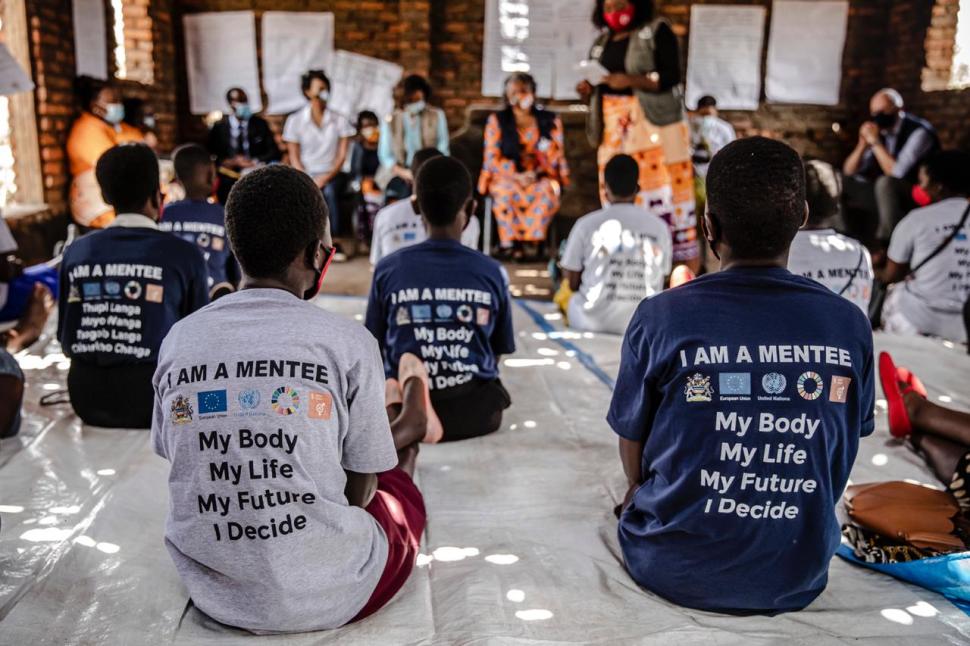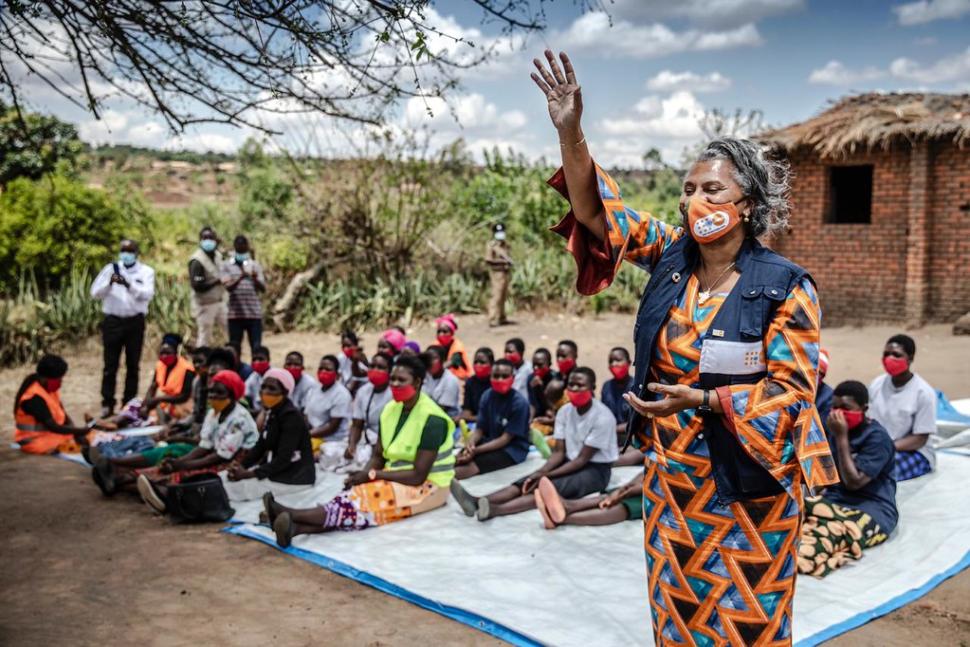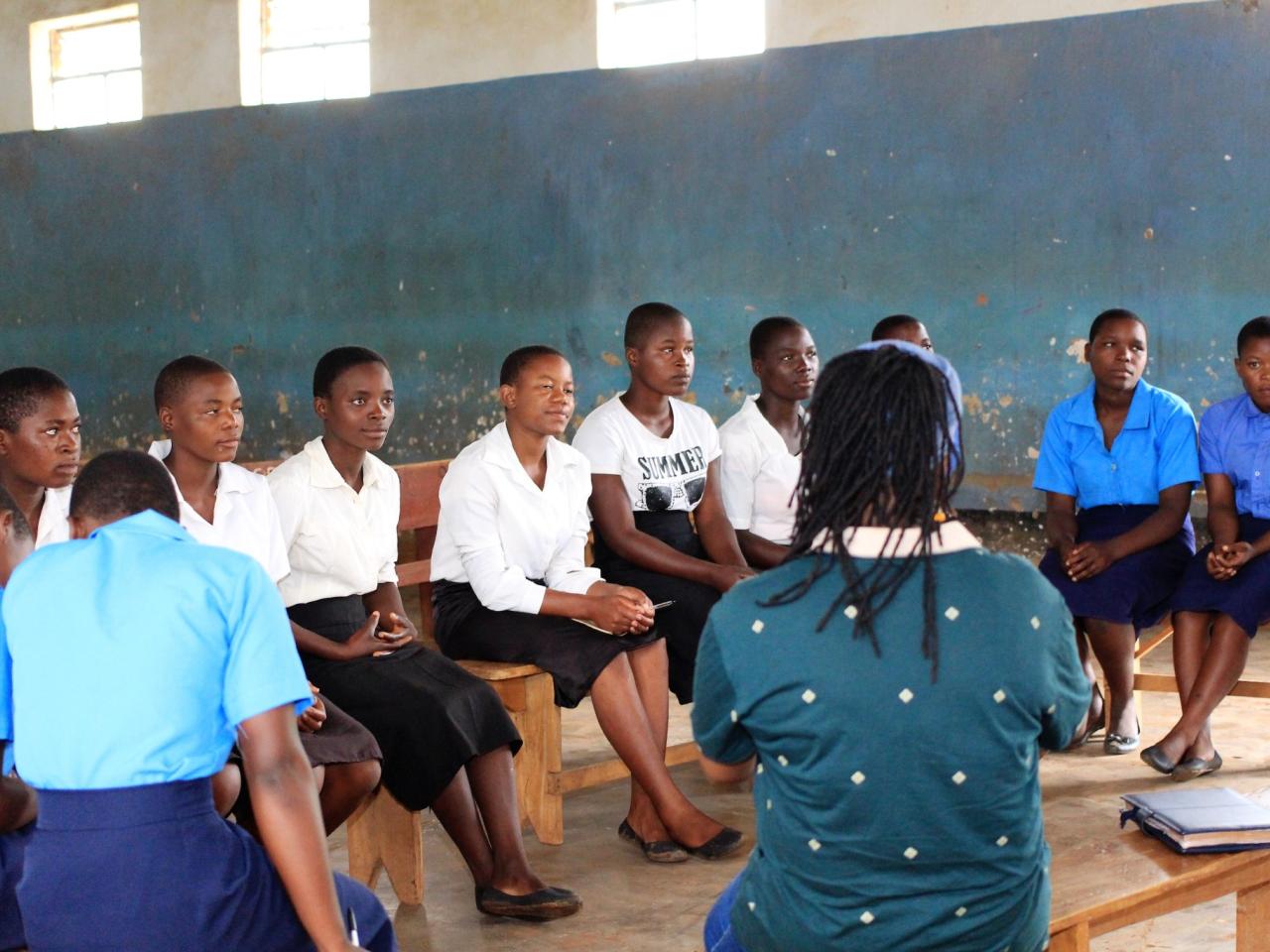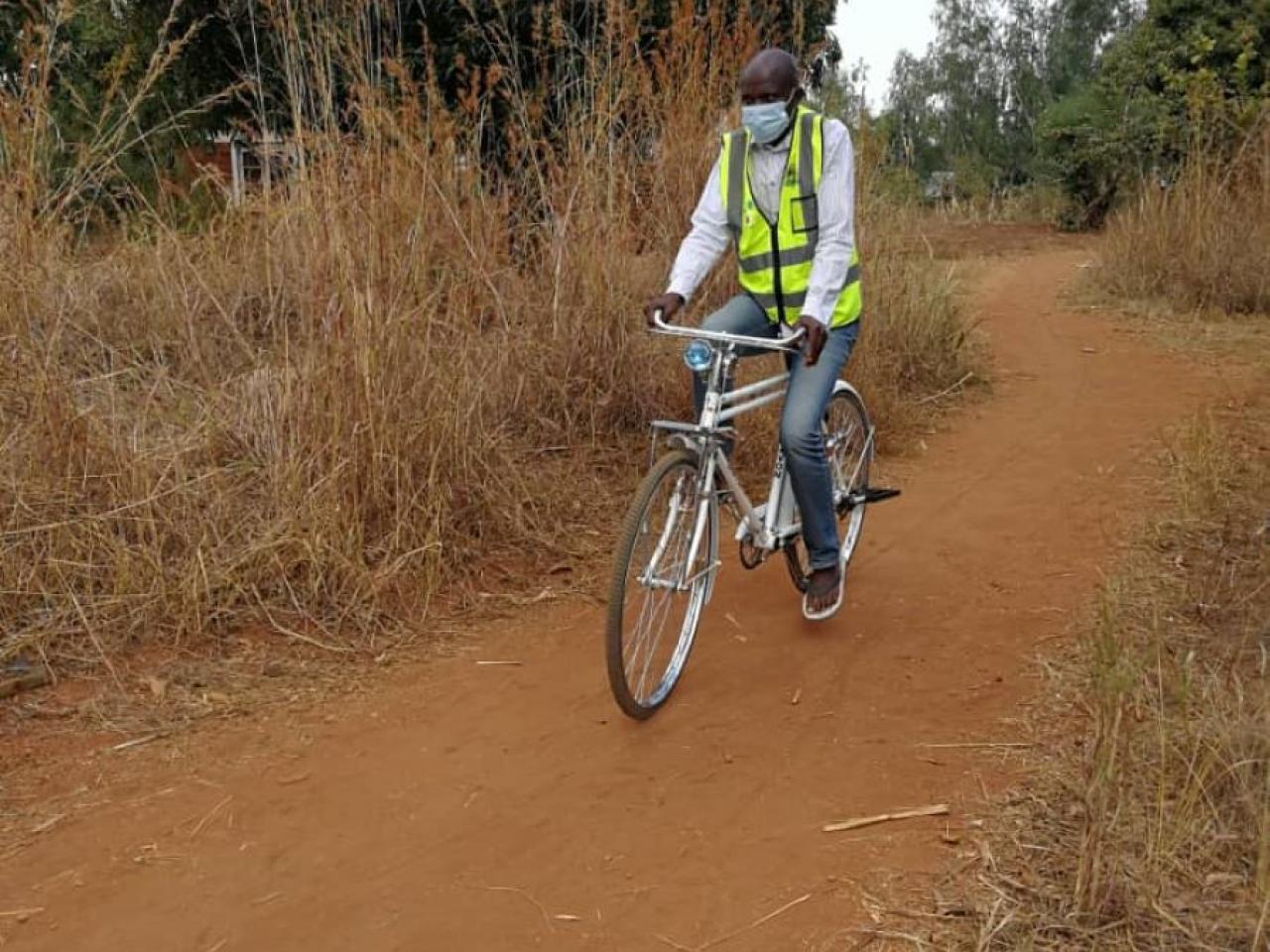'Early marriage is not a solution' - Tilimbike Safe Community Space in Malawi shows that mentoring works
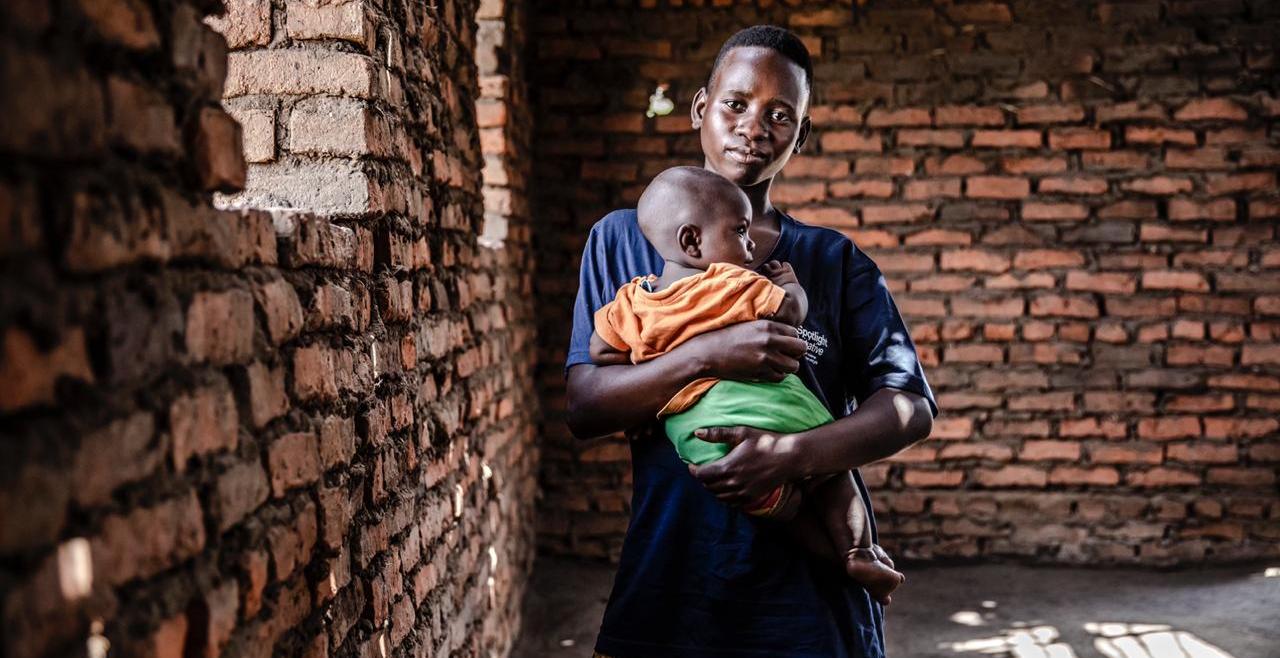
DOWA, Malawi - “Now I know that I have the right to quality education, the right to freely express my opinion and that early marriage is not a solution – thanks to the safe space, because it has made me aware of my human rights,” said Alinat Fackson, 17, who received mentoring at Tilimbike Safe Community Space.
“Girls, let’s stay in school and focus on our education,” she advises her peers.
Alinat is from Chiludzi village in Dowa. One of 16 adolescent girls and young women who are part of the mentorship programme at the Tilimbike Safe Community Space, run under the Spotlight Initiative, she has renewed hope for achieving her full potential as she now understands how to make informed decisions about the future she wants.
“Girls, let’s stay in school and focus on our education” - Alinat Fackson, 17
The Spotlight Initiative targets the most at-risk groups with focused efforts to eliminate violence against women and girls, including sexual and gender-based violence (GBV), and harmful practices such as child marriage.
Getting adolescent girls and young women out of vulnerable spaces, where their rights and choices are limited or not accessible, is the cornerstone of these mentorship sessions, as Ricksani Alice, 19, who was married at a young age, describes: “Due to safe space sessions, I have come to realize that early marriage is not a good thing as one can easily get childbirth complications associated with early childbirth, such as fistula or even maternal death,” said Ms. Alice.
In the mentorship sessions, girls are taught life skills and about their human rights, including sexual and reproductive health and rights. These have brought positive results for the community, as the girls become able to speak out and challenge negative social norms that drive harmful practices, such gender-based violence, child marriage and teenage pregnancy.
“With this mentorship programme, I can proudly say girls are becoming change-makers and they will reach their fullest potential,” said Twambilire Kayuni, Programme Coordinator, Girls Empowerment Networks (GENET).
Working collectively to end gender-based violence and harmful practices
Addressing community members from Chizungu village in Traditional Authority Dzoole, Dr. Julitta Onabanjo, UNFPA Regional Director for East and Southern Africa, said there is a need for all community members – including cultural and religious leaders, district officials, men and boys – to work together to ensure an end to gender-based violence and harmful practices.
"The decisions that men take affect women, and it’s important that they treat us [women] as equals. We want to hold hands together to make Malawi a better place,” she said.
“My humble request to the mentees today borders on three important things, as I ask them to be a sister’s keeper and ensure that there is no teenage pregnancy, no gender-based violence and no child marriage. But they can only do that if the community enables them to do that,” said Dr. Onabanjo.
"We are determined to keep girls in school so that we can have educated adolescent girls and young women in our community, who will contribute to the prosperity of this area" - Senior Chief Traditional Authority Dzoole
"Let’s work together to end violence against women. We are ready to make this a reality."
Senior Chief Traditional Authority Dzoole agreed. “We are determined to keep girls in school so that we can have educated adolescent girls and young women in our community, who will contribute to the prosperity of this area,” he said.
Senior Chief Dzoole commended all those involved for giving adolescent girls and young women a voice, as well as the ability to call out perpetrators of gender-based violence, as more girls now understand the reporting channels for GBV.
“Let’s work together to end violence against women. We are ready to make this a reality,” said Council Chair, Martin Luka Phiri.
Mentorship sessions help prevent teenage pregnancy and child marriage during COVID-19
To ensure that adolescent girls and young women are safe from the negative impact of COVID-19, such as early marriage or teenage pregnancy, the mentorship sessions are proving an effective model of prevention of these harmful practices.
“During COVID-19 there were zero teenage pregnancies and zero child marriages from [among] the mentees, proving that girls are able to make decisions over their bodies and over their lives, and also determine what their future will be,” said Beatrice Kumwenda, UNFPA Gender Programme Officer and focal point for the UN joint Spotlight Initiative.
As many adolescent girls and young women found themselves at home due to school closure, as a result of lockdown measures, safe community spaces provided many of the mentees with an opportunity to interact with their peers.
“During COVID-19 there were zero teenage pregnancies and zero child marriages from [among] the mentees" - Beatrice Kumwenda, UNFPA Gender Programme Officer and Spotlight Initiative focal point
“I am happy to see that the girls are on the right track and they must continue to stay put,” said Ambassador Mr. Ivo Hoefkens, Head of Cooperation (chargé d’affaires) of the European Union delegation to Malawi.
Investing in adolescent girls and young women will make a huge difference and bring sustained prosperity to these communities.
Mentorship sessions, covering 360 mentors across the focus districts of Dowa, Ntchisi, Mzimba, Nkhatabay, Machinga and Nsanje, are creating a cadre of 7,000 young women with knowledge and assertiveness skills, who are able to challenge harmful practices that fuel gender-based violence in the communities, and provide advice to women and girls, especially survivors of GBV.
“Investing in adolescent girls and young women will make a huge difference and bring sustained prosperity to these communities,” said Maria-Jose Torres, United Nations Resident Coordinator in Malawi.
The Spotlight Initiative is a joint programme implemented by UNFPA, UNICEF, UNDP and UNWomen. It is tailored to promote the guiding principle of Agenda 2030 to “leave no one behind”, as it envisions a comprehensive prevention strategy that addresses structural issues and linkages to sexual and reproductive health and rights.
Originally published on UNFPA ESARO.

